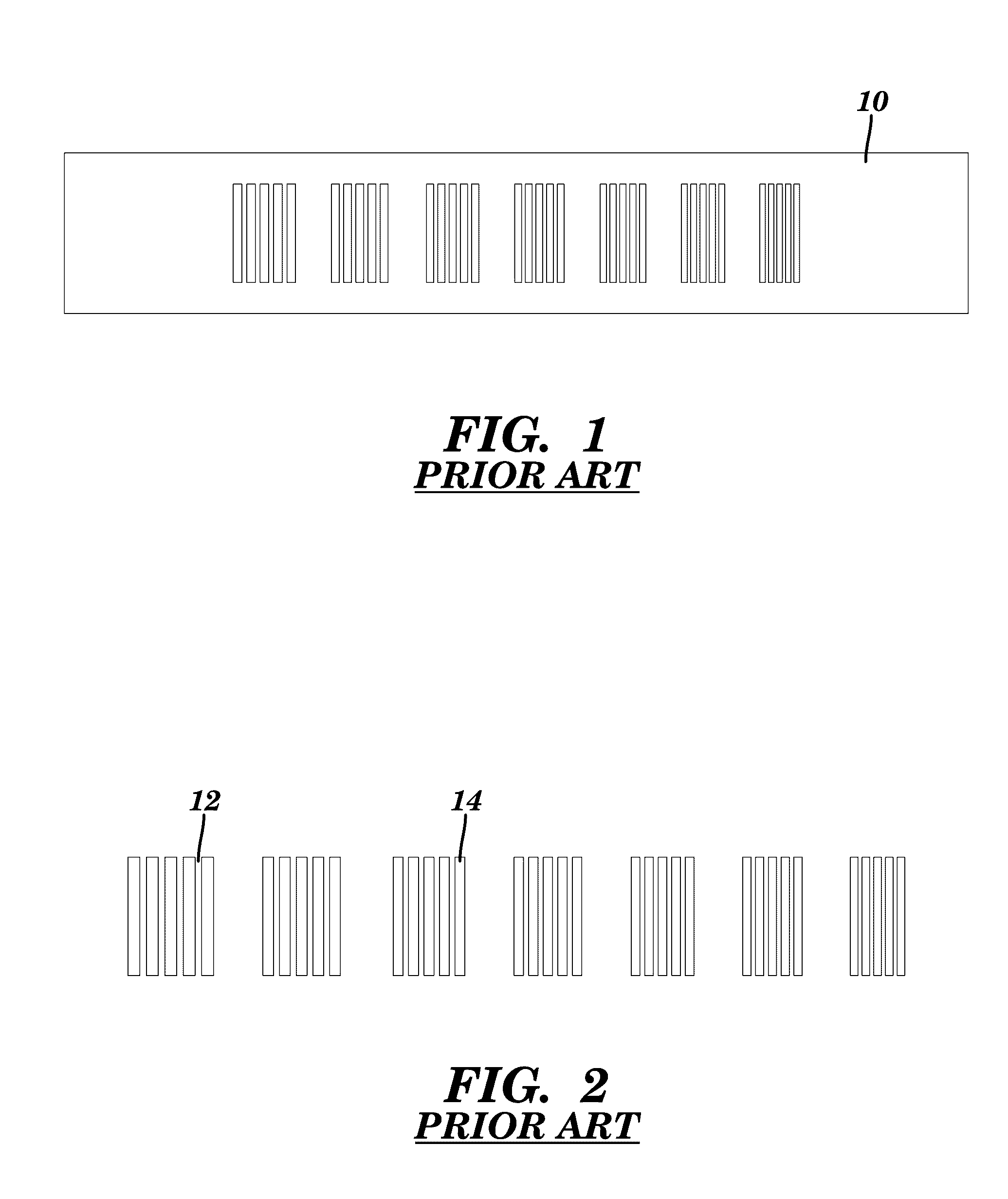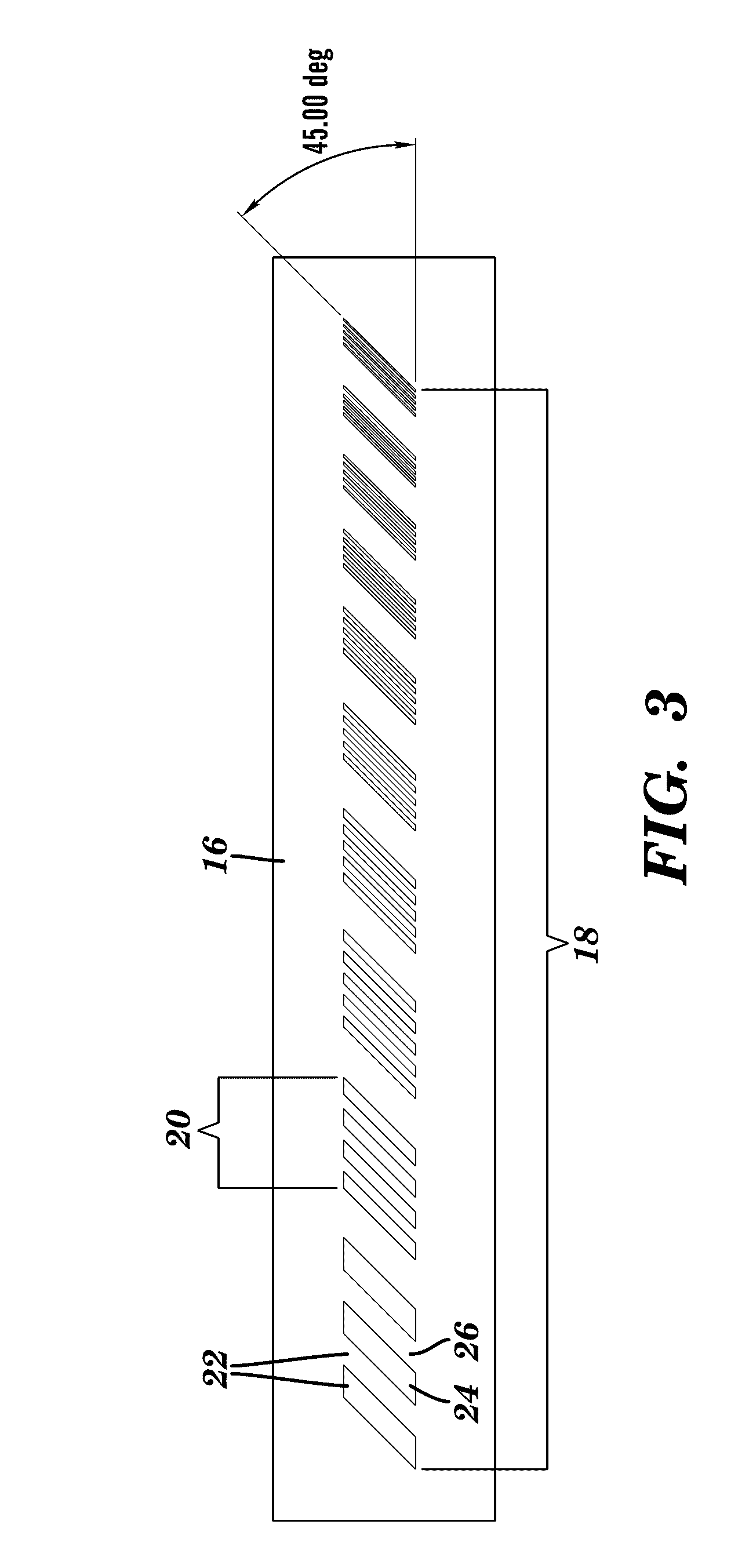Three-dimensional resolution gauge for evaluating performance of tomographic imaging systems
a technology of tomographic imaging and three-dimensional resolution, applied in the field ofphantom tomographic imaging system performance evaluation, to achieve the effect of x or y versus, reducing or reducing the z
- Summary
- Abstract
- Description
- Claims
- Application Information
AI Technical Summary
Benefits of technology
Problems solved by technology
Method used
Image
Examples
Embodiment Construction
[0034]FIGS. 1 and 2 illustrate a conventional in-plane, 2-dimensional high resolution gauge 10. As one moves from left to right, it becomes more difficult to identify the white lines (spaces) 12 between the black lines (bars) 14. So basically, the better the in-plane or x-y imaging resolution, the finer the pattern that can be discerned. However, such in-plane gauges fail to consider z axis effects on image resolution in tomographic imaging systems.
[0035]FIG. 3 is a schematic side view of an example of a 45° resolution gauge 16, constructed according to the principles of the present invention. The gauge includes a series 18 of segments or groupings 20 of 3-dimensional line pairs 22. Each grouping 20 is composed of angled fins or ramps 24, set at a common constant acute angle of 45°, in spaced apart parallel planes. Each line pair 22 comprises a single ramp 24 and an adjacent intermediate space 26. From one end to the other end of the gauge 16, e.g., from left to right in FIG. 3, the...
PUM
 Login to View More
Login to View More Abstract
Description
Claims
Application Information
 Login to View More
Login to View More - R&D
- Intellectual Property
- Life Sciences
- Materials
- Tech Scout
- Unparalleled Data Quality
- Higher Quality Content
- 60% Fewer Hallucinations
Browse by: Latest US Patents, China's latest patents, Technical Efficacy Thesaurus, Application Domain, Technology Topic, Popular Technical Reports.
© 2025 PatSnap. All rights reserved.Legal|Privacy policy|Modern Slavery Act Transparency Statement|Sitemap|About US| Contact US: help@patsnap.com



